COVID-19 Cannot Be the Death Knell for the American Jury Trial
How are we going to assure that the touchstone of our judicial system remains uncompromised as the fundamental guarantee of equal justice and protection from government overreach?
April 20, 2020 at 01:00 PM
8 minute read
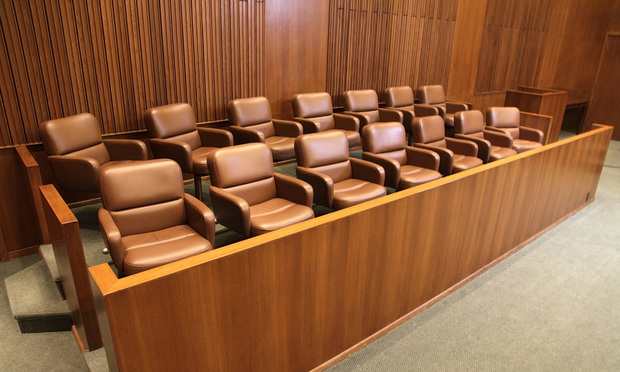 Photo: Jason Doiy/ALM
Photo: Jason Doiy/ALM
The COVID-19 pandemic is challenging many of our fundamental institutions. Among them, criminal and civil jury trials, the bedrock of the American system of justice, are now indefinitely suspended in the state and federal courts. During the impending period of a "new normal," how are we going to assure that the touchstone of our judicial system remains uncompromised as the fundamental guarantee of equal justice and protection from government overreach?
Thomas Jefferson wrote, "I consider [trial by jury] as the only anchor yet imagined by man, by which a government can be held to the principles of its constitution." It is a declaration voiced by many over the years, including former U.S. Supreme Court Chief Justice William Rehnquist, who observed: "The right to trial by jury in civil cases at common law is fundamental to our history and jurisprudence. A right so fundamental and sacred to the citizens should be jealously guarded.
It would be naïve to minimize the difficulties of restarting jury trials. COVID-19 is a vicious force and it calls on us to find and use our best thoughts and practices to protect the jury system. Most critical will be resistance to the natural urge to acquiesce to government pressure to curtail fundamental rights inherent in the jury system. Stay at home orders in New York and throughout the country have made it impossible for courts to conduct jury trials.
But as the orders ease and a phased reopening of public spaces and public activities begins, conducting jury trials in some fashion will have to resume. The overriding imperative will be safety from infection. But no less important will be preservation, without dilution, of the essential, almost magical, quality of jury trials as the true guarantee of individual rights in the face of government accusations as well as the fair arbiter of civil claims of liability. How do we protect this pillar at the core of our system of justice from being eroded by the precedent of virtual trials that so easily could eviscerate or, at least, dilute the raw human element that is central to every jury trial? Now is the time to think about the myriad of risks and issues that we will have to confront in the "new normal" when fear of infection could so easily swallow fundamental rights and essential fairness.
From constitutional questions, to screening procedures; from civil rights issues, to procedures for deliberation; from effective advocacy, to the presence of defendants and litigants; from innovative technology, to enforcing the basics of social distancing and personal hygiene, it is time to consider, formulate, and recommend an integrated, innovative plan for preserving what jury trials guarantee, while conducting them in a post COVID-19 world. This will be tricky, with many unanticipated pitfalls and threats to justice. It will require continuous evaluation and the first answers to many problems will likely not be the best or ultimate answers. But one thing is clear: We need to get started in a systematic, safe, effective, and fair manner.
The scope and nature of the challenges begins to become better defined as we walk through six phases of the jury trial process:
(1) Identifying and assembling eligible jurors: Recruiting healthy jurors and keeping them healthy during the process while maintaining the diversity that is essential to the right to a jury trial raises many questions: What is the best method and procedure for calling people to jury duty? Who will be considered jury eligible? Will immunity be required or just a recent negative test? How and where will potential jurors be brought for their orientation and other pretrial preparation? Should any of the recruiting of the venire be done remotely? And what is the impact on diverse representation in the jury pools? Should we consider increasing the amounts we pay for jury service; perhaps as part of a broader public service plan?
(2) Jury selection and voir dire: Gathering large groups of potential jurors may not be feasible. Can a smaller, technology supported, physically distanced process be utilized? Once a pool has been assembled for a case, can written voir dire completed on a court provided laptop provide a safer but adequate means for addressing issues of bias and hardship? If oral voir dire is required for cause and preemptory challenges, as in the New York system, what are the best practices for effectively, efficiently, and safely uncovering bias without exposing jurors to a potentially unhealthy environment? State court litigators will certainly bridle at the loss of personal voir dire, which can provide a powerful connection between prospective jurors and counsel.
(3) Presenting the case to the jurors: Most courtrooms and, certainly, most jury boxes and jury rooms do not allow for adequate social distancing. What kind of redesign or re-purposing of courtrooms and courthouses might make safer spacing possible? Once a jury has been empaneled, does it make sense to sequester it for the period of the trial and deliberations, keeping jurors from any 'outside' exposures? Will jurors wear masks in the courtroom? Will witnesses, counsel, and the parties? Can we find ways to restrict the amount of time we are asking jurors to sit in the courtroom? Might there be an opportunity to use timed trials more often, allow jurors to do homework, provide video take home tutorials, tighten restraints on what and how documents are presented? But the key will be to find ways for jurors as a group to hear and see the critical witnesses live. Impressions, credibility judgments, and assessments of the evidence based upon the common experience of the jury as a group is at the core of the right to a jury trial.
(4) Protecting judges, court personnel, witnesses: The less that is done live in real time, the safer and often the greater the efficiency of a trial. However, the pressure and temptation to streamline in a post COVID-19 world is a direct threat to Sixth and Seventh Amendment jury trial guarantees. How do we not lose sight of these fundamental rights that fear can seemingly overwhelm? Many courts already restrict the manner in which the direct testimony of experts is offered. Videoed testimony is also now commonplace. What are the fair limits on such presentations so that the time that judges, attorneys, court personnel, parties, witnesses, and jurors need to sit in the courtroom—even one that is arranged to preserve social distancing—is minimized? If a juror, witness, or lawyer appears to have symptoms, can a court order a test mid-trial? If results are positive, what compromises, if any, are tolerable in civil or criminal trials?
(5) Legal instructions: In limiting the time that jurors are sitting in the jury box and the judge is on the bench, can the reading of preliminary instructions and final legal instructions be taped and played for jurors in the deliberation room—again arranged for appropriate distancing and with a court deputy in the room? Or might the judge read the instructions from chambers with counsel present on a closed-circuit feed to the jurors in the jury room? Are there other opportunities to limit the live, in the courtroom, time without sacrificing the crucial human element which is the fulcrum of most jury decisions?
(6) Deliberations: Whether there are six, eight or 12 jurors on a case, the confines of a jury room make social distancing a challenge. How can jury rooms be designed to provide the greatest safety possible and also to mitigate the fears and anxiety of jurors working under these circumstances? How many jurors and alternates will be empaneled anticipating infection during trial? If a juror is reported to be ill during deliberations, can a judge order a test? At the deliberation stage, does it make sense to sequester deliberating jurors? What effect will the fear of COVID-19 exposure have on jurors that distorts deliberations and gives rise to unfair results or mistrials?
The Sixth Amendment of the Bill of Rights outlines the rights to a speedy, impartial, jury trial in criminal cases and the Seventh Amendment preserves the right to jury trial in civil cases. So, it is not surprising that to preserve our democracy we are constantly reminded that we must protect the jury system. As U.S. Supreme Court Justice Hugo Black wrote in 1939, "It is essential that the right of trial by jury be scrupulously safeguarded as the bulwark of civil liberty."
In his ode to the American jury, District Judge William G. Young more recently wrote: "The most stunning and successful experiment in direct popular sovereignty in all history is the American jury. Properly constrained by its duty to follow the law, the requirement of jury unanimity, and evidentiary rules, the American jury has served the republic well for over two hundred years. It is the New England town meeting writ large. It is as American as rock 'n' roll."
Rock 'n' Roll is here to stay and, so too, must the American jury system. COVID-19 has too many tragic victims already; it cannot be allowed to take jury trials and with them a foundation of American democracy.
Richard Emery is a founding partner of Emery Celli Brinckerhoff & Abady. Daniel Cooper is president of LitStrat, Inc., a jury consulting firm.
This content has been archived. It is available through our partners, LexisNexis® and Bloomberg Law.
To view this content, please continue to their sites.
Not a Lexis Subscriber?
Subscribe Now
Not a Bloomberg Law Subscriber?
Subscribe Now
NOT FOR REPRINT
© 2025 ALM Global, LLC, All Rights Reserved. Request academic re-use from www.copyright.com. All other uses, submit a request to [email protected]. For more information visit Asset & Logo Licensing.
You Might Like
View All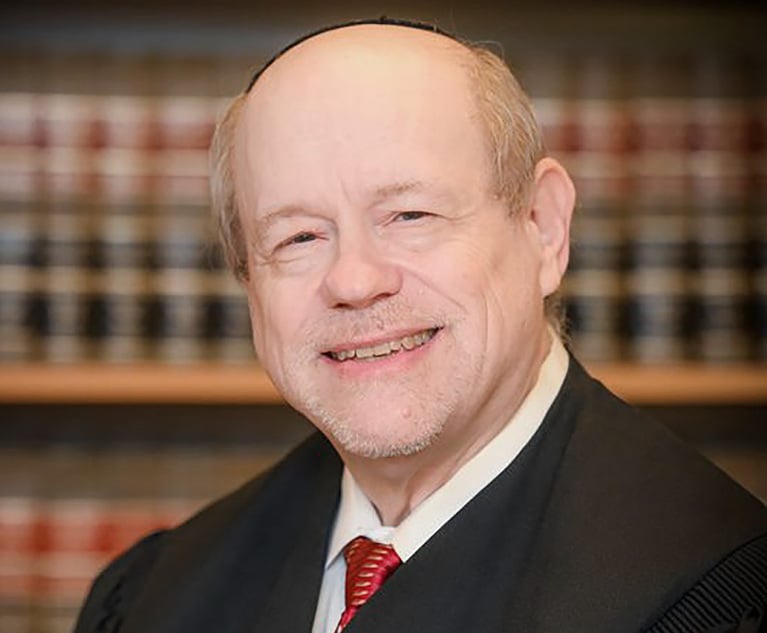
Decision of the Day: Judge Sanctions Attorney for 'Frivolously' Claiming All Nine Personal Injury Categories in Motor Vehicle Case
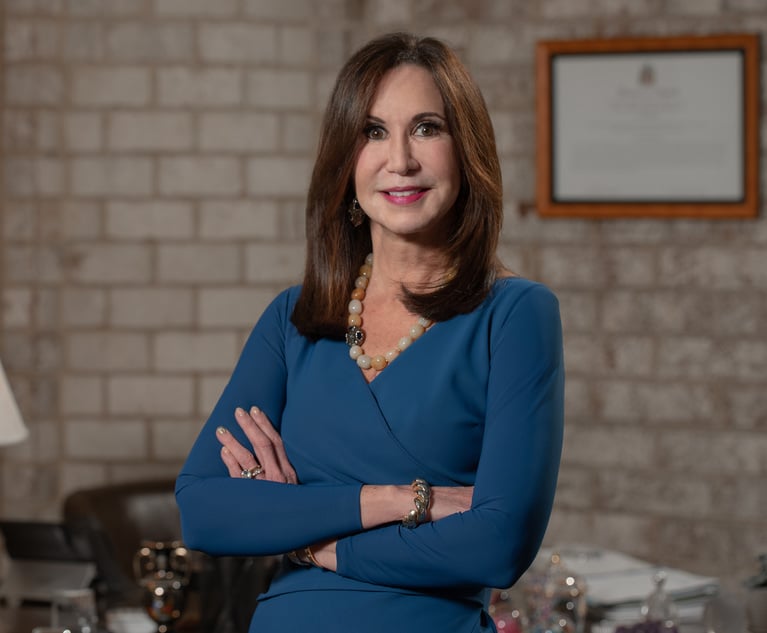
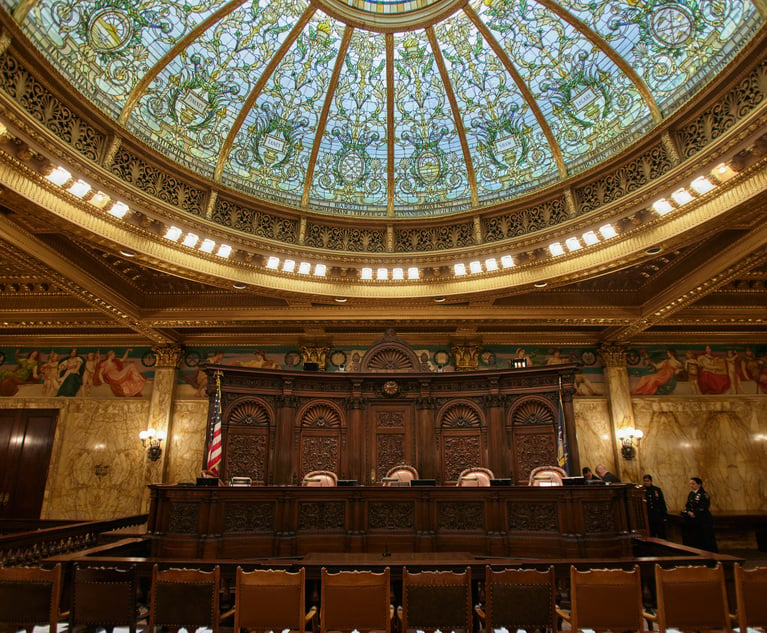
Decision of the Day: Trial Court's Sidestep of 'Batson' Deprived Defendant of Challenge to Jury Discrimination
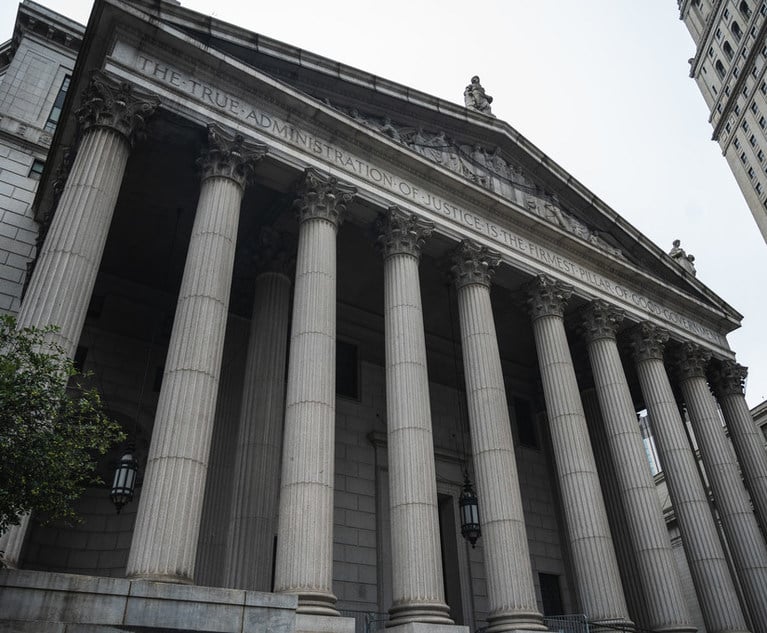
Decision of the Day: Commercial Division Finds Defendant Engaged in Unfair Competition Against Plaintiff
Trending Stories
- 1Conversation Catalyst: Transforming Professional Advancement Through Strategic Dialogue
- 2Trump Taps McKinsey CLO Pierre Gentin for Commerce Department GC
- 3Critical Mass With Law.com's Amanda Bronstad: 700+ Residents Near Ohio Derailment File New Suit, Is the FAA to Blame For Last Month's Air Disasters?
- 4Law Journal Column on Marital Residence Sales in Pending Divorces Puts 'Misplaced' Reliance on Two Cases
- 5A Message to the Community: Meeting the Moment in 2025
Who Got The Work
J. Brugh Lower of Gibbons has entered an appearance for industrial equipment supplier Devco Corporation in a pending trademark infringement lawsuit. The suit, accusing the defendant of selling knock-off Graco products, was filed Dec. 18 in New Jersey District Court by Rivkin Radler on behalf of Graco Inc. and Graco Minnesota. The case, assigned to U.S. District Judge Zahid N. Quraishi, is 3:24-cv-11294, Graco Inc. et al v. Devco Corporation.
Who Got The Work
Rebecca Maller-Stein and Kent A. Yalowitz of Arnold & Porter Kaye Scholer have entered their appearances for Hanaco Venture Capital and its executives, Lior Prosor and David Frankel, in a pending securities lawsuit. The action, filed on Dec. 24 in New York Southern District Court by Zell, Aron & Co. on behalf of Goldeneye Advisors, accuses the defendants of negligently and fraudulently managing the plaintiff's $1 million investment. The case, assigned to U.S. District Judge Vernon S. Broderick, is 1:24-cv-09918, Goldeneye Advisors, LLC v. Hanaco Venture Capital, Ltd. et al.
Who Got The Work
Attorneys from A&O Shearman has stepped in as defense counsel for Toronto-Dominion Bank and other defendants in a pending securities class action. The suit, filed Dec. 11 in New York Southern District Court by Bleichmar Fonti & Auld, accuses the defendants of concealing the bank's 'pervasive' deficiencies in regards to its compliance with the Bank Secrecy Act and the quality of its anti-money laundering controls. The case, assigned to U.S. District Judge Arun Subramanian, is 1:24-cv-09445, Gonzalez v. The Toronto-Dominion Bank et al.
Who Got The Work
Crown Castle International, a Pennsylvania company providing shared communications infrastructure, has turned to Luke D. Wolf of Gordon Rees Scully Mansukhani to fend off a pending breach-of-contract lawsuit. The court action, filed Nov. 25 in Michigan Eastern District Court by Hooper Hathaway PC on behalf of The Town Residences LLC, accuses Crown Castle of failing to transfer approximately $30,000 in utility payments from T-Mobile in breach of a roof-top lease and assignment agreement. The case, assigned to U.S. District Judge Susan K. Declercq, is 2:24-cv-13131, The Town Residences LLC v. T-Mobile US, Inc. et al.
Who Got The Work
Wilfred P. Coronato and Daniel M. Schwartz of McCarter & English have stepped in as defense counsel to Electrolux Home Products Inc. in a pending product liability lawsuit. The court action, filed Nov. 26 in New York Eastern District Court by Poulos Lopiccolo PC and Nagel Rice LLP on behalf of David Stern, alleges that the defendant's refrigerators’ drawers and shelving repeatedly break and fall apart within months after purchase. The case, assigned to U.S. District Judge Joan M. Azrack, is 2:24-cv-08204, Stern v. Electrolux Home Products, Inc.
Featured Firms
Law Offices of Gary Martin Hays & Associates, P.C.
(470) 294-1674
Law Offices of Mark E. Salomone
(857) 444-6468
Smith & Hassler
(713) 739-1250






